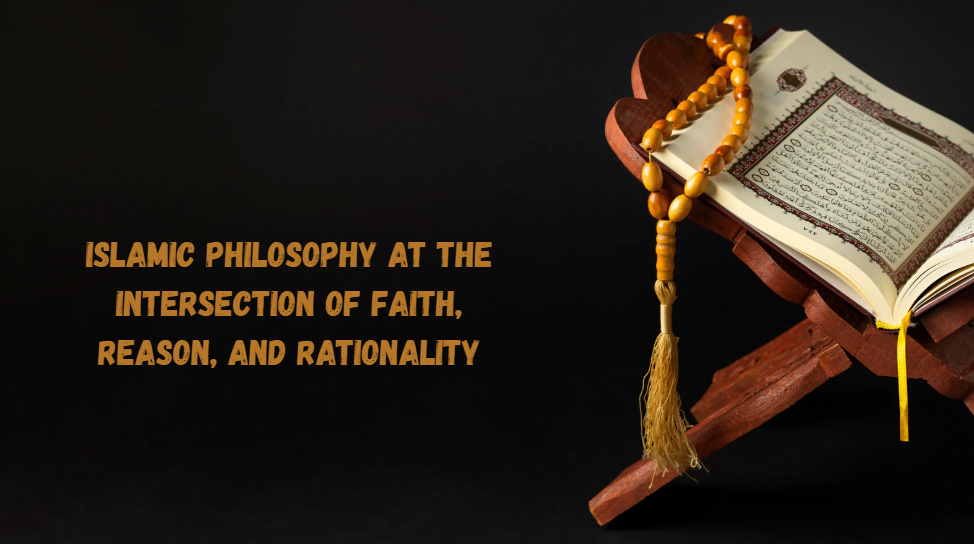One of the most famous intellectual traditions in history is Islamic philosophy. It tackles the most fundamental issues facing humanity and is based on the teachings of the Quran and the example of the Prophet (PBUH): What is the purpose of life? What is the relationship between human reasoning and Divine revelation? Is it possible for faith and reason to exist together? Muslim philosophers devoted their lives to finding the answers to these questions and demonstrated that faith and intelligence are allies rather than enemies. Islamic philosophy influenced not only the Muslim world but also knowledge and culture worldwide by merging spiritual direction with logical reasoning. Fundamentally, Islamic philosophy shows that faith and intelligence may exist together and guide the mind and soul.
Roots of Islamic Philosophy
The belief that everything that exists come from Allah is the cornerstone of Islamic philosophy. The Quran that delivers lessons on social justice, ethics and spirituality, is regarded as the final source of truths. The usage of Aql to study creation, moral decisions and human nature was also promoted among Muslims. The special qualities of Islamic philosophy was originated from the harmonious relationship between rationality and revelation. When Islam spread into new areas, Muslims researched the knowledge and concepts of ancient cultures like Greek, Indians and Persians. Arabic translations of the works of philosophers such as Plato and Aristotle have been made. But Muslim scholars did not just adopt these ideas. Rather they carefully researched them, challenged them and modified them to adjust with Islamic perspectives on oneness of Allah, human purpose and ethics.
Faith and Reason: Complementary Forces
Islamic philosophy has made major advancements to highlighting the compatibility between faith and reason. These two are not enemies. According to Muslims scholars, reason is a tool used to examine, clarify and utilize the divine truth in daily life, but faith works as an anchor that ties person to it. It was believed that rationality was a gift from Allah that helped people to tackle issues and difficulties and gain knowledge. According to Al-Farabi, philosophy makes divine instruction understandable to people with multiple degrees of intelligence by providing a rational explanation. According to Ibn-Sina’s philosophy, God is the necessary being which denotes the ultimate origin of all things. Ibn Rushd later made the case that religion and philosophy are not separate from one another. He claimed that faith is strengthened, not weakened, by the use of reason and logical thought. By adopting this method, a culture was established in which scholars could explore astronomy, medicines, morality and mathematics while maintaining an Islamic foundation for their work. It shows that religion can encouraged more in-depth research rather than limiting knowledge.
Rationality in Daily Life
The rationality of Islamic customs was also highlighted by Islamic philosophy. In addition to being spiritual responsibilities, the five pillars of Islam —faith, salah, fasting, zakat and Hajj — are also logical means of promoting togetherness, self-control and ethics. For example, Zakat targets social economic fairness. Fasting develops self-control and realization of hunger and thirst of needy and poor people which foster compassion for them. Philosophers proved that how faith-based behaviors matches up with human reason and the welfare of society through analyzing various behaviors.
Contributions to Global Thought
Beyond the Islamic world, Rational approaches of Muslim scholars made a significant contribution. By translating works into Arabic and then in Latin, they helped to preserve Greek philosophy at a time when much of it had been lost in Europe. They bought organized and systematic reasoning in the fields of medicine, ethics, algebra and optics. Intellectual traditions in Europe were influenced by thinkers such as Ibn-Sina and Al-Gazali. For example, Thomas Aquinas read writings of Ibn-Rushd with great interest. This shows the Islamic philosophy and traditions influence on the worldwide scale, as rationality, reason and faith collaborate to establish groundwork for contemporary philosophy and science.
Challenges and Debates
Islamic philosophy face controversies, just like any other intellectual tradition. Some argued that relying too heavily on reason could diminish faith, while other claimed that recognizing divine revelation required rational thought. For example, Al-Ghazali stated that reason has a rightful and valid place in spiritual life but criticized philosopher for excessively using reasoning without a religious foundation. These arguments draw attention to the constant struggle to maintain a balance between revelation and human understanding. They also highlights the versatility of Islamic philosophy, which enabled various viewpoint to flourish within a common set of principles.
Lasting Relevance
Islamic philosophy still provides helpful and beneficial information today. It offers a demonstration how science and religion can coexist in a world where these two fields are frequently separated. The tradition highlights that rationality and reason are useful tools for overcoming human problems, while faith offers purpose and moral foundation. This tradition is utilized by modern Muslim scholars to discuss topics like social fairness, technology ethics and interfaith communication. They show the ongoing importance of Islamic thought by going back to basics of harmony and balance between faith and intellect.

